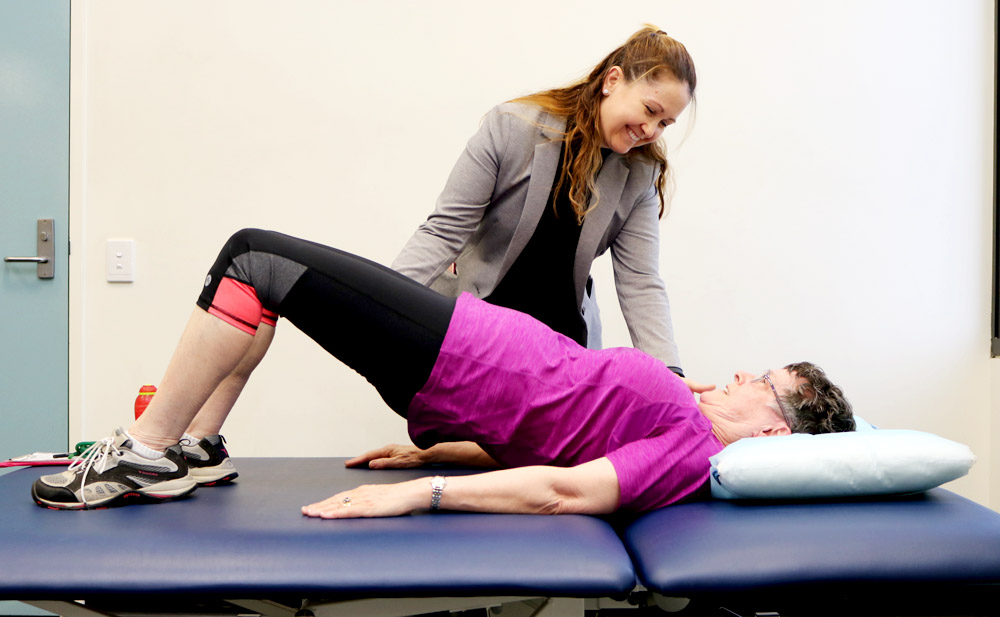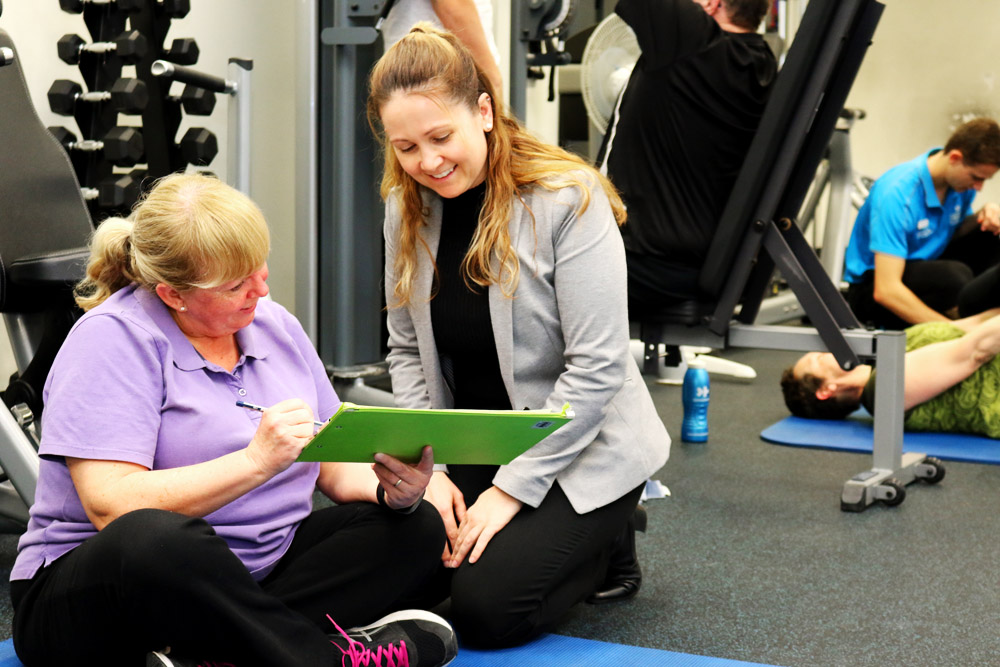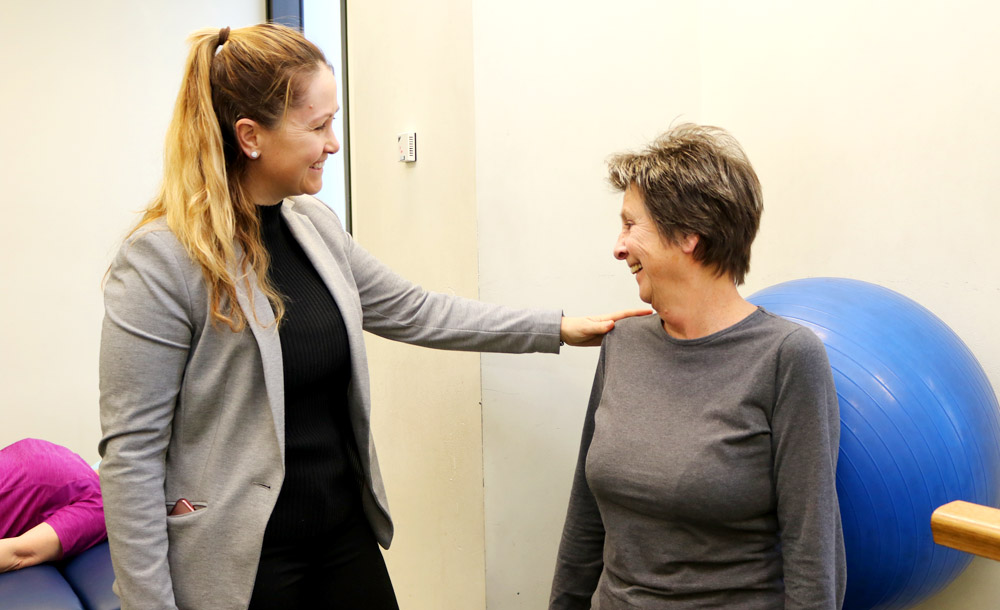Marcus Butler
28 July 2017: High-intensity exercise, working up a sweat and chemotherapy may seem like an odd combination, but what started out as a University of Canberra research project has turned into an ongoing exercise program helping people with cancer.
The Cancer Rehabilitation program is run by the Faculty of Health Clinics and aims to help cancer patients and survivors to build their fitness levels to fight the cancer and better handle chemotherapy’s intense drug regime.
Clinical Assistant Professor Kellie Toohey started the project in 2013 as part of her PhD studies into high-intensity interval training and continuous moderate-intensity training and comparing their health outcomes and cardio-metabolic disease risk factors in cancer survivors.
She estimates more than 400 or 500 people have graduated from the program since then.
“A lot of the benefits of exercise are just as important or even more important for people undergoing cancer treatment,” Mrs Toohey said.
“Improving energy levels and strength and decreasing fat mass can help participants’ bodies handle the chemotherapy better. In some cases it will improve blood flow and that can get more of the cancer-fighting drugs to the right places where they can do the most good.
“We are keen to point out this isn’t exercise therapy ‘instead’ of treatment; it is designed entirely to complement the medical treatment they’re already having.”
Each participant is assessed and has an individualised exercise program provided for them, some can be intensive, with weights and cardio sessions. The program runs for eight weeks, but Mrs Toohey said most people participate for 16 weeks.
“If they are going through a chemo course at the time, we want them to stick with the exercise program until it’s complete. It may seem counterintuitive to be engaging in exercise, particularly high-intensity, but participants report feeling more energetic and being able to adjust back to the life they had before treatment.”
One of the program’s graduates, Angela Braniff is in remission from breast cancer and credits the program with helping to save her life.
“With the program, exercise became a regular part of my week. Sometimes I couldn’t manage to get to the session, but on those days I made sure I did more exercise at home,” Ms Braniff said.
“It helped me to feel normal, and while I was going through really awful treatment it was all the more important.”
Ms Braniff is able to look on the bright side of her battle with cancer and the role of the Cancer Rehabilitation program.
“I can see that my fight against the cancer actually brought me two gifts; I got my fitness back and I connected with an incredible support network through the exercise classes,” she said.
“We continue to meet up regularly and many of the program’s graduates have joined the same gym, we even entered a team in this year’s Mother’s Day Classic in Canberra.”
More information about the Cancer Rehabilitation Program at the Faculty of Health Clinics is available online.





